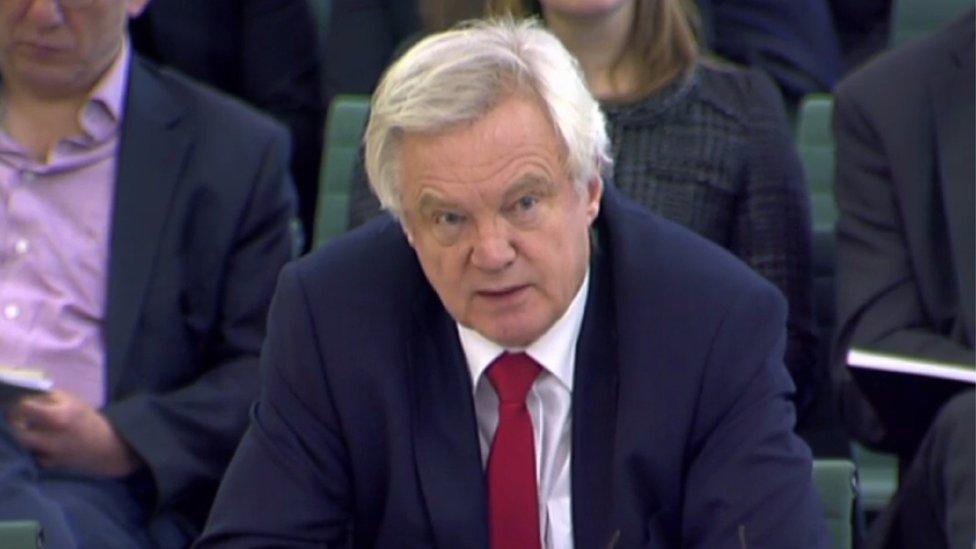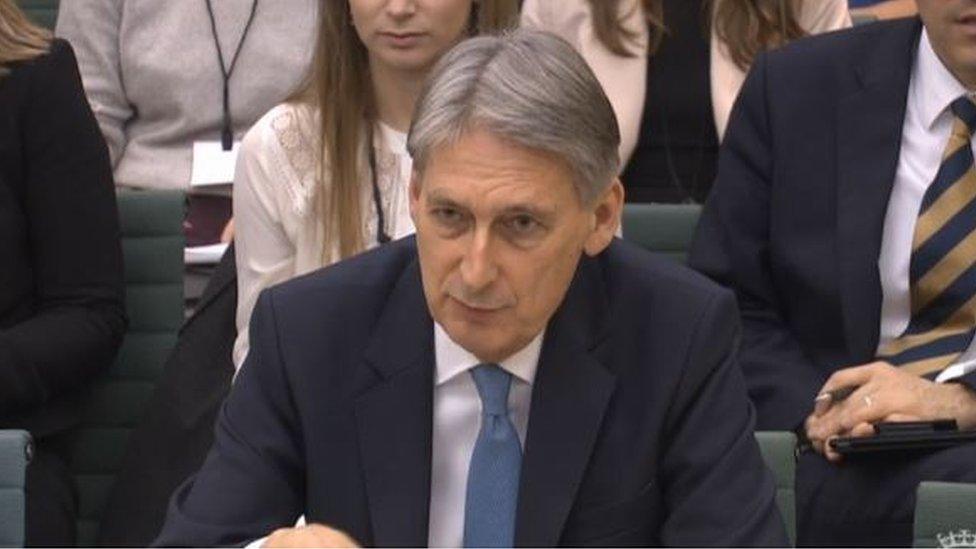Transition, transition, transition
- Published
- comments

David Davis tells MPs on the Commons Exiting the EU committee that he would be prepared to accept a transitional deal with the EU if it is necessary, and only if it is necessary.
It is the word of the week.
Just about anyone who is anyone in business or politics is now gathering around the "transitional deal" camp fire.
A lobbying group for financial services (unsurprising), a House of Lords committee, a deputy governor of the Bank of England, the chancellor, and now even David Davis, the Pied Piper of Brexit himself.
They have all come round to openly discussing the possibility that Brexit does not necessarily mean Brexit - at least not necessarily on the original time table.
There is a halfway house, they believe.
The idea for a transitional period to smooth the period between the UK's exit from the European Union and the completion of more detailed negotiations has been in the ether for months.
But this is the week in which it has begun to crystallise into solid form.
Chancellor Philip Hammond said earlier this week that "thoughtful" politicians acknowledged that a transition deal would be helpful to avoid the trauma of a sudden change in trading, customs and regulation arrangements the day after the UK leaves the EU.

Chancellor Philip Hammond told the Treasury select committee that he supported a transitional deal for Brexit, saying it would be "helpful" to allow longer than two years for the UK's EU exit.
That could be seen as an insult to Michael Gove and Jacob Rees-Mogg who hate the idea of a transitional deal.
But I am told there are very few "red lines" between the key departments in the way this negotiation is conducted.
There are also many definitions of what such a transition might look like.
Is it merely an implementation period for a largely agreed deal (David Davis's preference) or is it a longer term arrangement which keeps the status quo in place while details are worked out more slowly?
Either way, the pressure for more clarity is growing.
A House of Lords Committee will warn tomorrow that thousands of banking jobs will go to Europe if some sort of transition deal is not made ready.
The lobbying group, TheCityUK, will endorse that view, and privately bankers are finalising contingency plans, with some are close to pressing "go".
The chairman of HSBC, Douglas Flint, today told Bloomberg TV that the bank was looking at the option of moving staff to Paris if needed.
But one source told me today: "There is no enthusiasm for leaving. Banks are looking for excuses to stay".
We will soon see whether the sudden warmth towards a transitional deal is excuse enough.